Knowledge and solutions for a sustainable ocean economy are achieved through increased access to data, information, capacities and technologies. On this basis, ocean science can prepare, evaluate and lead the way.
The 2nd UN Ocean Decade Laboratory took place from 15 to 17 September 2021, offering valuable insights and talks around the Ocean Decade Outcome: “A Predicted Ocean”. The Laboratory served to address the need for more closely integrated observations and modelling, relevant collaborations around the world and connections to stakeholders and user communities. Highlighting existing gaps and potential solutions for ocean prediction, the lab marks a collaborative way forward to establishing a systematic, interdisciplinary ocean prediction, and information systems to benefit society.
EU4OceanObs and the Ocean Decade
EU4OceanObs is implemented by Mercator Ocean International (MOi) on behalf of the European Commission’s Service for Foreign Policy Instruments. A world-leader in operational global ocean monitoring and forecasting, MOi represented by its Director-General Pierre Bahurel, took part in the Predicted Ocean Laboratory, namely in the roundtable “from observations to predictions”. This session explored how to implement the concept of an integrated global observing system serving many users – including local enhancements down to the coastal level. Pierre Bahurel discussed the development and maintenance of modelling and data assimilation infrastructure, highlighting the importance of global data sharing and access, developing standards and best practices, and turning ocean science and innovation into viable operations and services.
By facilitating the EU coordination of the G7 Future of the Seas and Oceans (FSOI), EU4OceanObs works closely with the Ocean Decade’s ocean observing projects and programmes to co-evolve joint activities, targeting where G7 high-level support can add unique value. The EU4OceanObs GEO Blue Planet component will participate in leveraging the Group on Earth Observations’ (GEO) convening power and interdisciplinary work programme to mobilise action to enhance the use of ocean and coastal observations in support of the Decade.
Satellite Activities of the Predicted Ocean Laboratory
A total of 31 Satellite Activities, hosted by a diverse range of experts from several fields and targeting various goals accompanied the Core Event. They consisted of workshops, panel discussions along with interactive lectures, focussing on topics such as deep-ocean observation methods, efficient data digitization, accurate climate emergency systems, predicting the future of coral reefs using artificial intelligence and more.
For more information and to watch the recording of the event, click here.





